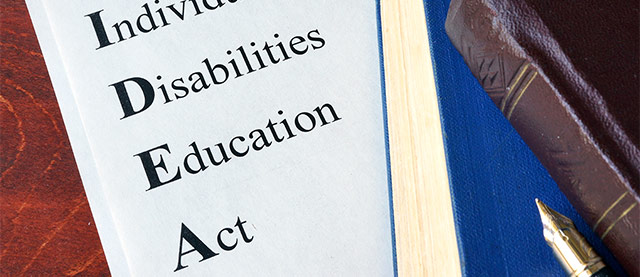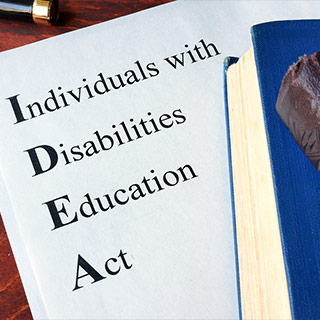Students with disabilities—be they physical, intellectual, learning, behavioral, or otherwise—are guaranteed certain rights under the law. Until high school graduation, they are protected by the Individuals with Disabilities Education Act and must have access to a free, appropriate public education. Once they’ve completed high school, students receive protection under both the Americans with Disabilities Act and Section 504 of the Rehabilitation Act of 1973. With the exception of colleges run by religious entities that do not receive federal funding, no public or private college or university, vocational school, or community college can discriminate against a student or applicant on the basis on their disability.
While many people associate physical impairments with the word “disability,” conditions like cancer, post-traumatic stress disorder, depression, and learning disabilities also meet the definition. Disabilities can be either congenital or developed, but both have an effect on a person’s physical and/or mental function. Depending on the severity of an impairment, an individual may be eligible for legal protection; an impairment has to affect one or more major life activities (e.g., speaking) or major bodily functions (e.g., breathing) to qualify for such protections.
The Individuals with Disabilities Education Act (IDEA) protects students with disabilities from discrimination on the basis of their disability. This protection is in place from birth through high school graduation. IDEA ensures that students with disabilities have access to a free, appropriate public education that is tailored to their needs and abilities through an Individualized Education Program. This is intended to ensure that students make measurable educational progress from year to year. To qualify for protections and rights under IDEA, a student’s disability must impair their educational performance.
Students with disabilities who want to attend college may do so without fear of discrimination. The Americans with Disabilities Act and Section 504 of the Rehabilitation Act of 1973 protect students with disabilities after they have completed high school and are no longer protected from discrimination by IDEA. To receive protection and accommodations, students must choose to disclose their disability to their college and provide appropriate documentation. Each institution is required to evaluate and fulfill these requests to the best of their abilities.
Finding the perfect college, one that will accept you, one that you can afford, and one that provides you with an opportunity to academically and personally thrive, is hard. If you are a student with a disability, it may seem that your options are limited. Fortunately, there are plenty of disability-friendly schools out there. The law protects you from discrimination and mandates that you be given equal access to all that a school has to offer, from taking mandatory standardized tests to filling out your application, all the way through graduation. Start constructing your college list today!










